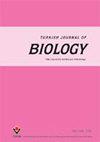Key actors in cancer therapy: epigenetic modifiers
IF 0.9
4区 生物学
Q3 BIOLOGY
引用次数: 7
Abstract
Epigenetic reprogramming plays a crucial role in the tumorigenicity and maintenance of tumor-specific gene expression that especially occurs through DNA methylation and/or histone modifications. It has well-defined mechanisms. It is known that alterations in the DNA methylation pattern and/or the loss of specific histone acetylation/methylation markers are related to several hallmarks of cancer, such as drug resistance, stemness, epithelial-mesenchymal transition, and metastasis. It has also recently been highlighted that epigenetic alterations are critical for the regulation of the stemlike properties of cancer cells (tumor-initiating cells; cancer stem cells). Cancer stem cells are thought to be responsible for the recurrence of cancer which makes the patient return to the clinic with metastatic tumor tissue. Hence, the dysregulation of epigenetic machinery represents potential new therapeutic targets. Therefore, compounds with epigenetic activities have become crucial for developing new therapy regimens (e.g., antimetastatic agents) in the fight against cancer. Here, we review the epigenetic modifiers that have already been used in the clinic and/or in clinical trials, related preclinical studies in cancer therapy, and the smart combination strategies that target cancer stem cells along with the other cancer cells. The emerging role of epitranscriptome (RNA epigenetic) in cancer therapy has also been included in this review as a new avenue and potential target for the better management of cancer-beneficial epigenetic machinery.癌症治疗的关键因素:表观遗传修饰因子
表观遗传重编程在致瘤性和肿瘤特异性基因表达的维持中起着至关重要的作用,特别是通过DNA甲基化和/或组蛋白修饰发生。它有良好定义的机制。众所周知,DNA甲基化模式的改变和/或特定组蛋白乙酰化/甲基化标记物的缺失与癌症的几个特征有关,如耐药、干细胞、上皮-间质转化和转移。最近还强调,表观遗传改变对于癌细胞(肿瘤起始细胞;癌症干细胞)。癌症干细胞被认为是导致癌症复发的原因,这使得患者带着转移性肿瘤组织回到诊所。因此,表观遗传机制失调代表了潜在的新治疗靶点。因此,具有表观遗传活性的化合物已成为开发新的治疗方案(如抗转移药物)对抗癌症的关键。在这里,我们回顾了已经在临床和/或临床试验中使用的表观遗传修饰剂,癌症治疗的相关临床前研究,以及针对癌症干细胞和其他癌细胞的智能组合策略。外转录组(RNA表观遗传学)在癌症治疗中的新兴作用也包括在本综述中,作为更好地管理癌症有益的表观遗传机制的新途径和潜在靶点。
本文章由计算机程序翻译,如有差异,请以英文原文为准。
求助全文
约1分钟内获得全文
求助全文
来源期刊

Turkish Journal of Biology
BIOLOGY-
CiteScore
4.60
自引率
0.00%
发文量
20
审稿时长
6-12 weeks
期刊介绍:
The Turkish Journal of Biology is published electronically 6 times a year by the Scientific and Technological
Research Council of Turkey (TÜBİTAK) and accepts English-language manuscripts concerning all kinds of biological
processes including biochemistry and biosynthesis, physiology and metabolism, molecular genetics, molecular biology,
genomics, proteomics, molecular farming, biotechnology/genetic transformation, nanobiotechnology, bioinformatics
and systems biology, cell and developmental biology, stem cell biology, and reproductive biology. Contribution is open
to researchers of all nationalities.
 求助内容:
求助内容: 应助结果提醒方式:
应助结果提醒方式:


